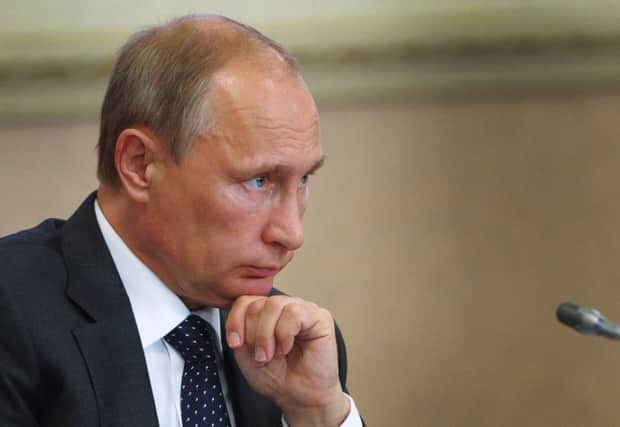Russia bans western food imports amid Ukraine row


The sweeping move will cost Western farmers billions but could also lead to empty shelves in Russian cities.
The decision shows that President Vladimir Putin has no intention of bowing to Western pressure over Ukraine and will instead try to strike back at the West.
Advertisement
Hide AdAdvertisement
Hide AdIt also demonstrates that the Kremlin is ready to inflict damage on Russia while pursuing its course in Ukraine.
The US and EU have accused Russia, which annexed Ukraine’s Crimean Peninsula in March, of fermenting tensions in eastern Ukraine by supplying arms and expertise to a pro-Moscow insurgency. They have imposed asset freezes and loan bans on a score of individuals and companies.
Prime Minister Dmitry Medvedev said at a televised Cabinet meeting that Russia’s retaliatory ban covers all imports of meat, fish, milk and milk products, fruit and vegetables from the United States, the European Union, Australia, Canada and Norway. It will last for one year.
Mr Medvedev said Russia could go further and ban Western carriers from flying over Russia on flights to and from Asia - a move that would significantly swell costs and increase flight time.
He said there has been no decision on that yet and would not specify when and under what conditions the move could be taken.
Mr Medvedev made it clear that Russia hopes that the sanctions will make the West revise its policy and stop trying to pressure Russia with sanctions.
“Until the last moment, we hoped that our partners would understand that sanctions only lead to a deadlock, and no one needs them, but they didn’t,” he said.
“We hope our partners will put a pragmatic economic approach above bad policy considerations and they will start thinking, instead of trying to scare us.”
Advertisement
Hide AdAdvertisement
Hide AdIf the West does not revise its course, Russia may follow up by introducing restrictions regarding imports of planes, navy vessels and cars, Mr Medvedev warned, but added that the government will realistically assess its own production potential.
Russia depends heavily on imported foodstuffs - most of it from the West - particularly in the largest and most prosperous cities such as Moscow.
In 2013 the EU’s agricultural exports to Russia totalled 11.8 billion euros (£9.4 billion), while the US Department of Agriculture says food and agricultural imports from the US amounted to 1.3 billion US dollars (£771 million).
Experts said that local producers will find it hard to fill the gap left by the ban, as the nation’s agricultural sector has continued to suffer from poor efficiency and shortage of funds.
The damage to consumers inflicted by the ban will be felt particularly hard in big cities like Moscow, where imported food fills an estimated 60-70 per cent of the market.